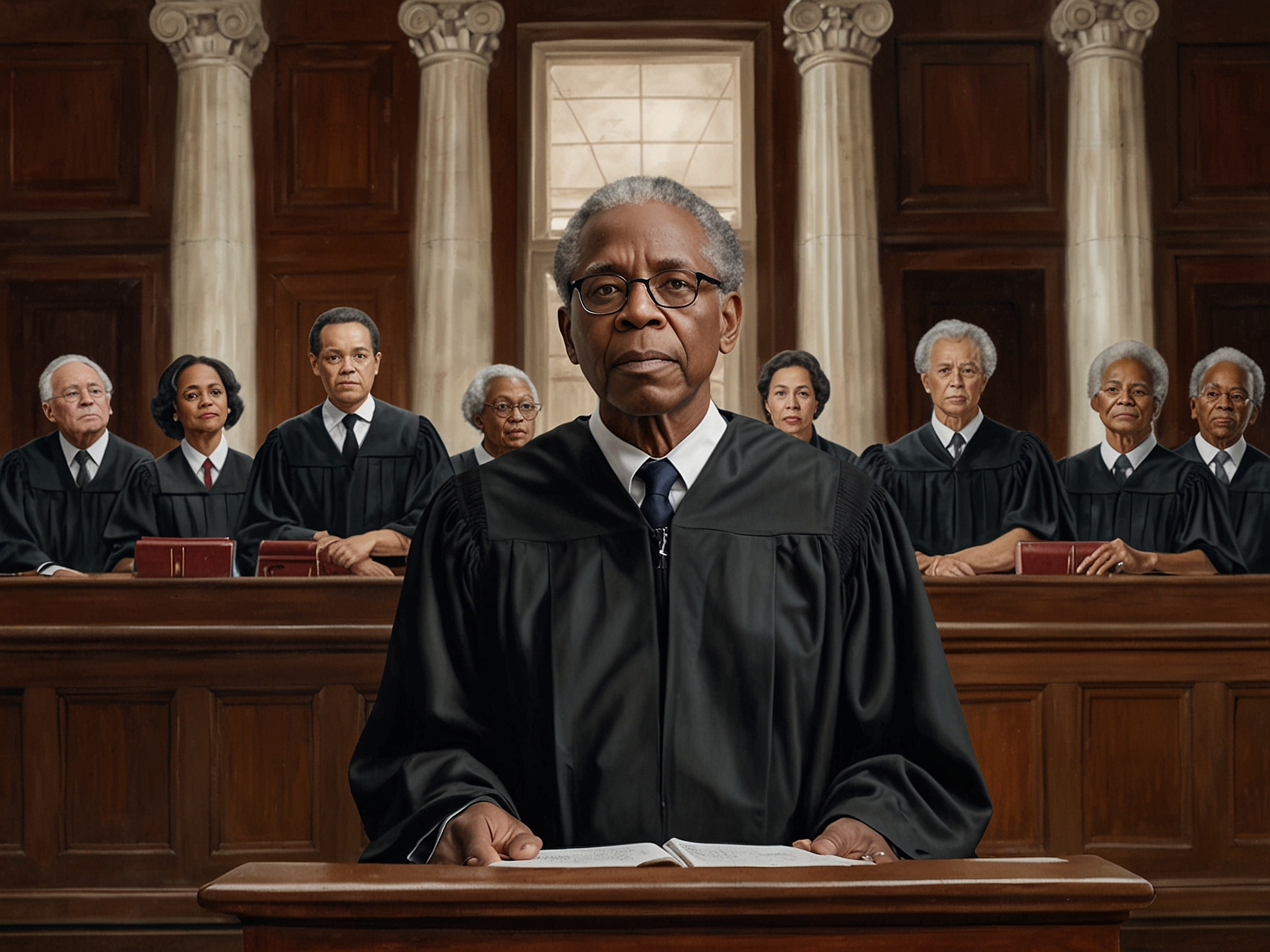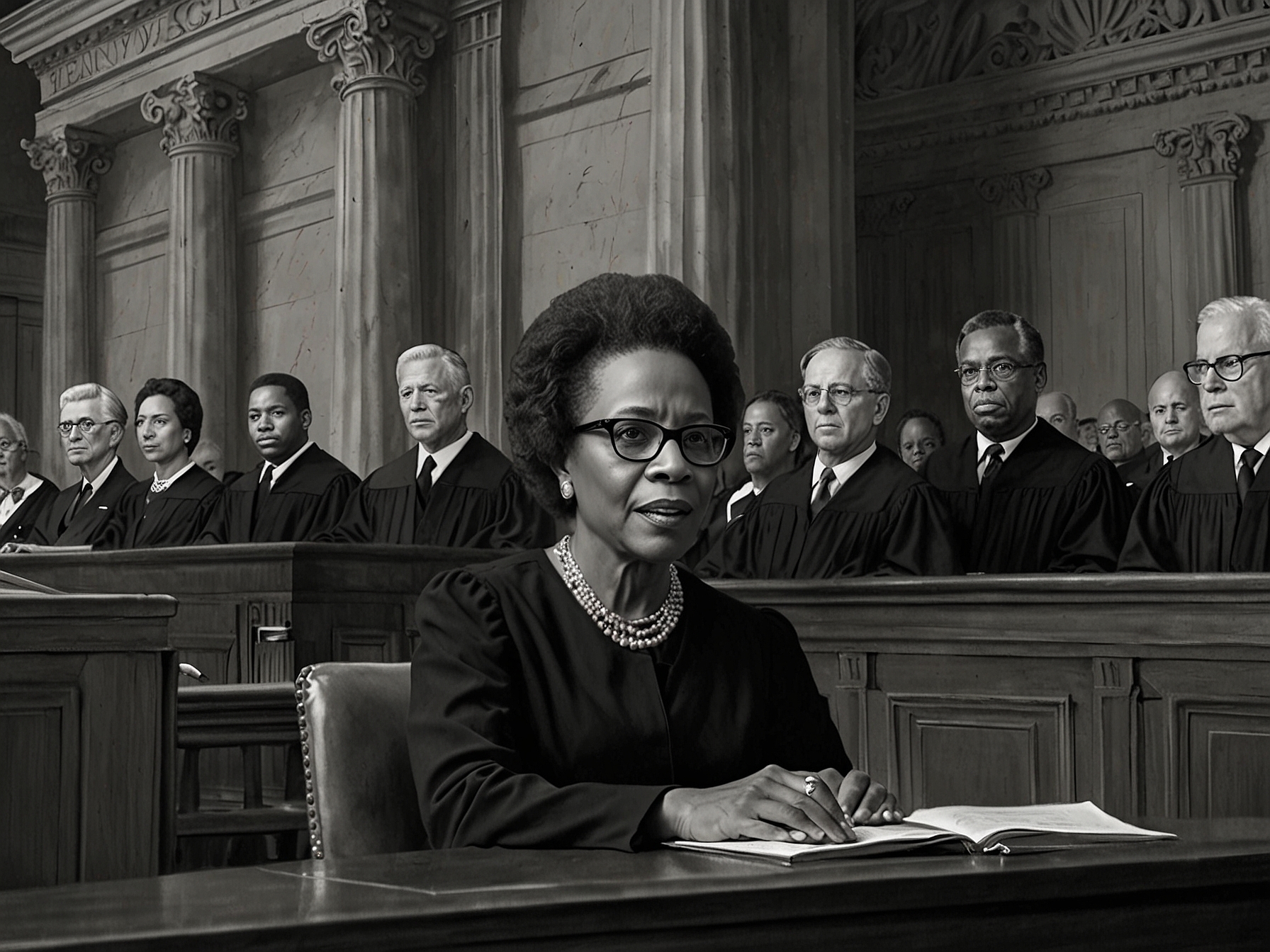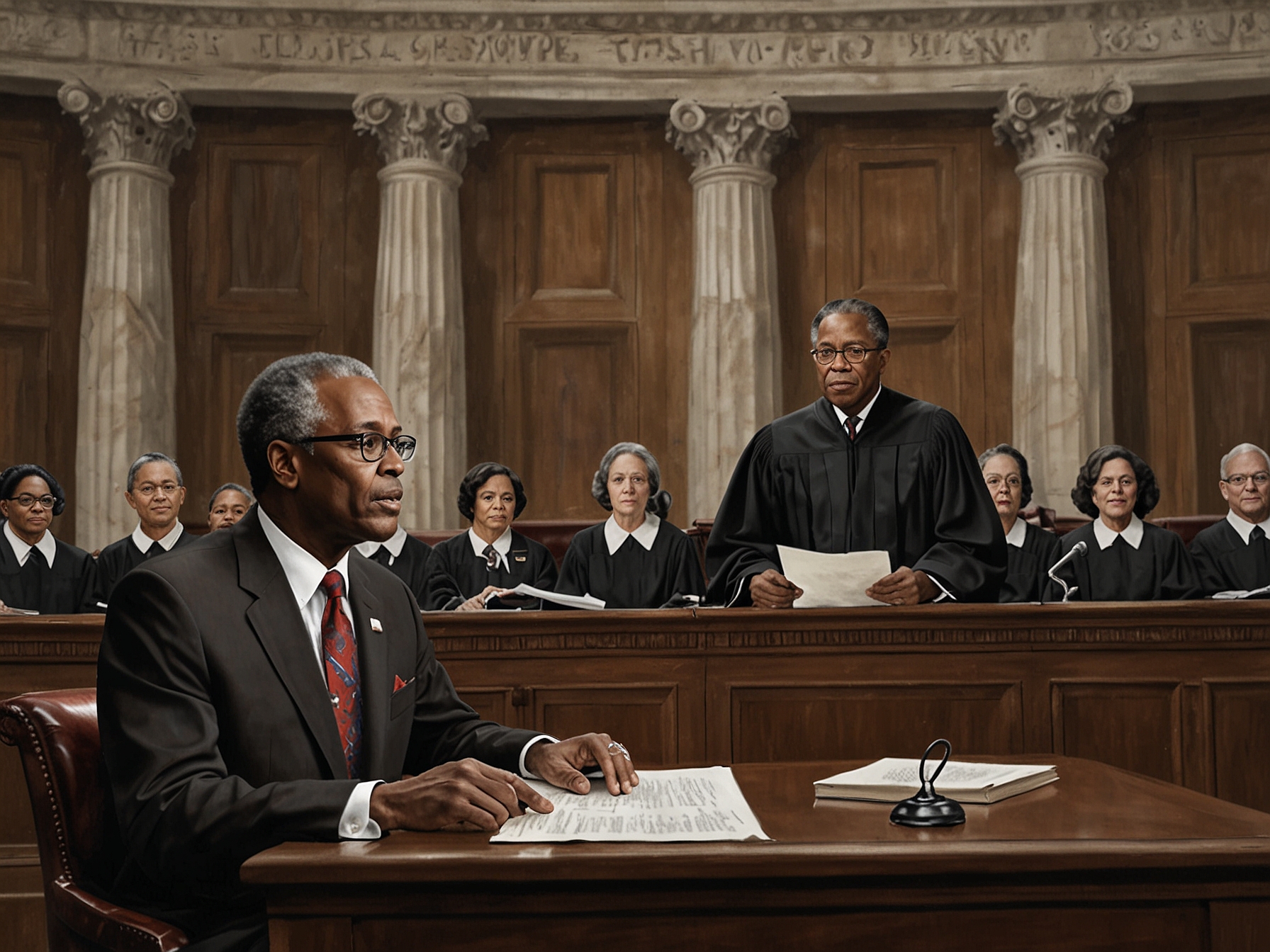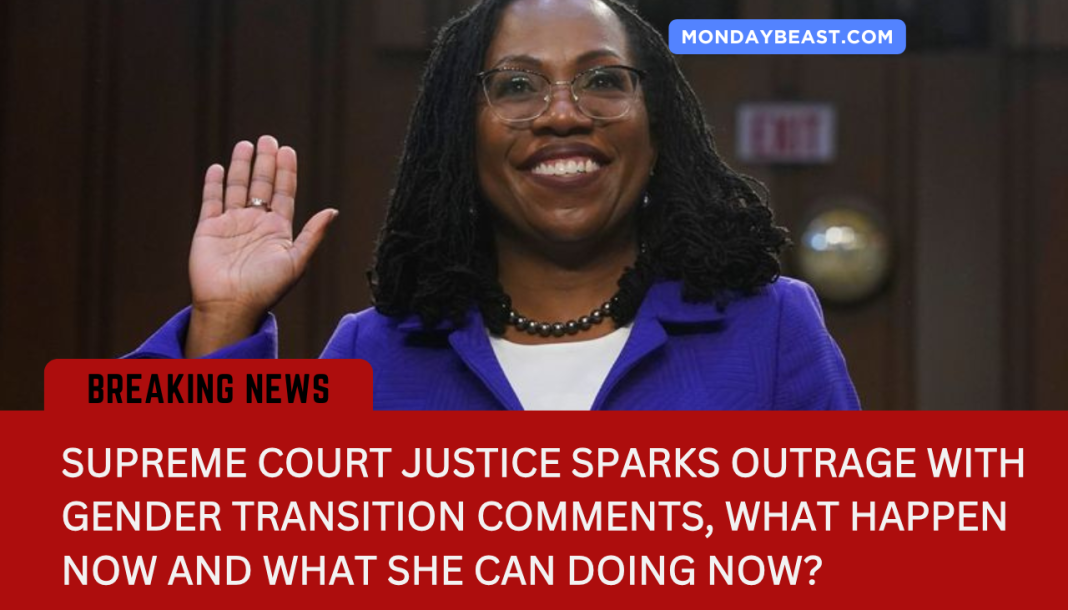In an era where opinions can be divisive, Supreme Court Justice Ketanji Brown Jackson ignited a firestorm on social media with her controversial comparison of gender transition laws to the landmark Loving v. Virginia case. Jackson’s remarks emerged during the U.S. v. Skrmetti case, which explores state laws barring gender transitions for minors. This intersection of law and human rights leaves many pondering: are these laws an extension of discrimination?

During oral arguments, U.S. Solicitor General Elizabeth Prelogar emphasized that state laws essentially discriminate based on sex. She argued that the gender identity of a minor is crucial in the medical decisions surrounding their treatment. After these compelling comments, Justice Jackson drew a parallel to how laws previously dictated who could marry whom in Virginia during the 1960s.
It’s a bold analogy, raising questions about the essence of personal rights. Jackson articulated her thoughts succinctly. “Interesting to me that you mentioned precedent, because some of these questions about sort of who decides… sound very familiar to me,” she stated.

This line of thought pushes boundaries and forces us to consider the fluid nature of rights over time. Could these restrictive laws mirror the oppressive statutes of a bygone era? The reaction was swift and fierce.
Critics pounced on her comments, with some arguing that equating gender transitions for minors to interracial marriage trivializes the struggles faced by those who fought for marriage equality. Others, like Collin Rugg, suggested that Jackson’s comparison was misguided, equating it to an illogical leap. Is this truly a fair comparison, or is it a distortion of historical context?

In one particularly biting critique, a commentator questioned Justice Jackson’s ability to rule on gender matters, referencing her inability to define “woman” during her confirmation hearing. This brings to light a discomforting idea: Can someone who struggles with defining gender tackle laws deeply intertwined with gender identity? Such comments inject a personal dimension into what is often a cerebral debate, making it all the more relatable to the public.
Amidst this heated dialogue lies a crucial question of identity and rights. Justice Jackson mused about the potential for states like Virginia to have outlawed interracial marriage, drawing a parallel to the implications of Tennessee’s law. While many found her comments fitting, others viewed them through a lens of skepticism.
These perspectives unravel the complexity of such discussions. Justice Sonia Sotomayor even likened transition treatments to aspirin when examining side effects. This seems to trivialize the gravity of decisions that impact lives.
Are we reducing profound choices to mere medical prescriptions? Or are we simply longing for clarity in a world rife with opinions and beliefs? As social media erupts with voices for and against Jackson’s comments, it’s vital to consider these tensions in context.
Supporters argue her remarks foster necessary conversations. Detractors insist they undermine serious debates about youth rights and medical ethics. Ultimately, the heart of this issue may come down to enduring questions about individuality, rights, and the constant evolution of societal norms.
The implications of these laws may echo into the future just as the echoes of Loving v. Virginia linger in the air. In a society fueled by dialogue, tension, and relentless questioning, Justice Jackson’s comments strike at the very core of our understanding of identity and acceptance.




